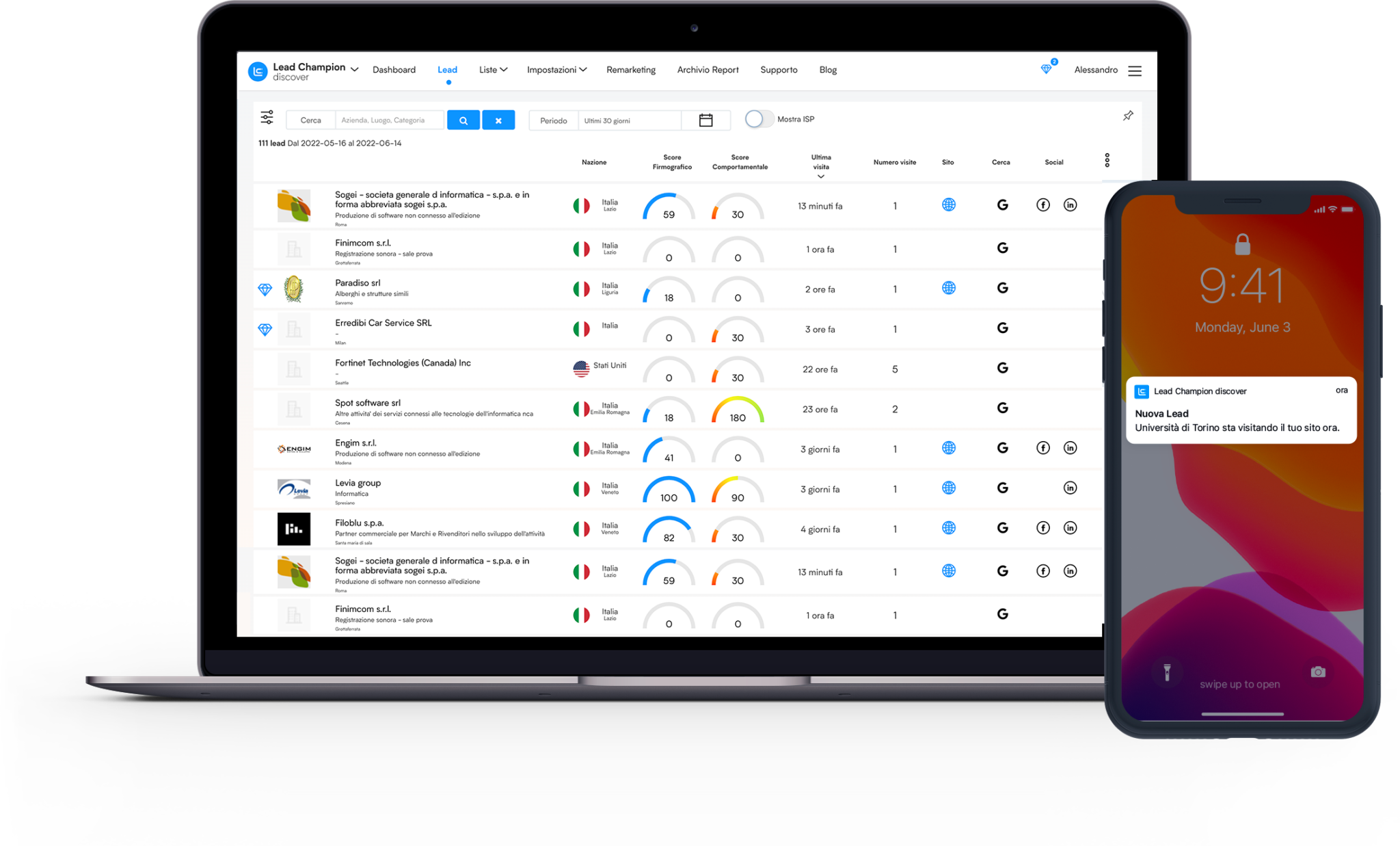What is a lead and what does Lead Generation mean, exactly? Lead Champion will explain it to you!
Samsung’s Tech Habits 2016 research highlighted that more than 88 percent of respondents have pretended to know a tech term at work at least once. This is a widespread dynamic, as many professionals prefer to hide their supposed ignorance – which isn’t always ignorance per se, as day in and day out we find ourselves dealing with new terms invented out of thin air.
In this article we will look at explaining the meaning of Lead in the context of B2B marketing: what is a lead? What does lead generation mean?
Einstein once said, “If you can’t explain it to your grandmother, you haven’t understood it well enough,” so we will make sure the message is as clear and direct as possible. However, we will also see some more controversial issues, because behind the concept of lead lies a world!
Well, let’s find out together what a lead really is.
What is a lead?
If we look up the word “lead” on the Oxford Dictionary we’ll find
Someone or something that can be useful, particularly a potential customer or business opportunity.
The very concept of “potential customer” is the gist of the answer we seek. Generally, when we talk about “lead” we think of the email address of a potential customer. In reality, however, the definition of a lead is much broader.
Marketo defines a lead as:
any entity, company or person, that has shown concrete interest in a product or service.
A potential customer shows interest not only by filling out a form: interest can also be recognized by some specific online behaviors. Imagine a user who visits the product page or, better yet, the price list several times. The user may not have filled out the form, but that doesn’t mean he or she is not interested or that this is not a business opportunity.
Marketing VS Sales
As they said at the beginning, the concept of lead also carries with it some somewhat complex issues. In fact, different interpretations of the term lead can cause internal conflicts!
For marketing activities, we tend to consider “lead” anyone who has shown any degree of interest. Sales, on the other hand, tends to adopt a less inclusive definition because it focuses only on contacts who have shown a tangible interest.
If for marketing therefore the number of B2B leads generated is important, thus giving quantitative weight to the concept, for sales it is more important to understand the true interest of the lead, thus giving it qualitative meaning.
Of course, the distinction is not always so clear-cut, however, there are certainly some divergences in the way different business functions interpret the results of B2B lead generation activities.
For a salesperson, on the other hand, it matters more the quality of a lead, which is defined by several characteristics including:
- product sector of the company
- product of interest
- timing of closing
- budget
- decision-making weight of the stakeholder
All of these are basic data to define ‘good’ a lead received. No wonder, then, that generating leads-in the commercial definition-is more difficult and many are discarded if they do not possess the characteristics useful for closing sales opportunities.
Imagine being a salesperson and receiving a list of 100 leads, where only 2 are qualified in the right way: your work in this way is much more time-consuming and laborious than you would like.
This is where the conflict between marketing and sales arises: no matter how efficient a marketing strategy is and brings leads into the CRM, a Salesperson will not be happy until the conversion rate between ‘lead’ and ‘customer’ is high.
According to a research by Gleanster Research only 25% of acquired leads are converted into customers; moreover, the same study claims that a marketing strategy that is not aligned with business needs leads to an annual decline in sales. A well-structured marketing and sales strategy, on the other hand, can increase sales by 20 percent.
According to MarketingProof, a company that specializes in analyzing the marketing world, revenues can increase by up to 208% with an effective strategy aligned between the two business areas.
Lead Generation: the solution
Creating a lead generation strategy is critical. This, if well mapped out, allows you to build a list of qualified leads and keep both Marketers and Salespeople happy.
Sometimes, however, this is not enough. A study by Marketo revealed that more than 95% of visitors leave the website without leaving contact information.
To avoid missing these business opportunities, you can rely on Lead Champion, which allows you to discover the companies most interested in your products or services that are browsing your website!
Get new leads
from your site with
Lead Champion!
Discover the companies that visit
your products and services.
Start now your free demo
of Lead Champion discover:


